Heavy rainfall
Growth
Mobility
P3 Commercial // Group 5
IDEA VISUALISATIONS
Objects become loose/start floating around ?
Do we need some sort of new temporary water collection system?
What happens to existing modes of transportation?
Do we need new clothing/
shoes?
Has the ground/
streets become a different material?
Are there new animals/other microorganisms such as algae or coral?
RESEARCH
Online
Offline (Delfshaven)
TINKERCAD WORKSHOP
MOBILITY MINDMAP
+
RESEARCH
STAKEHOLDER MAP
SCENARIO/NARRATIVE
INDIVIDUAL VISUALS/IDEAS
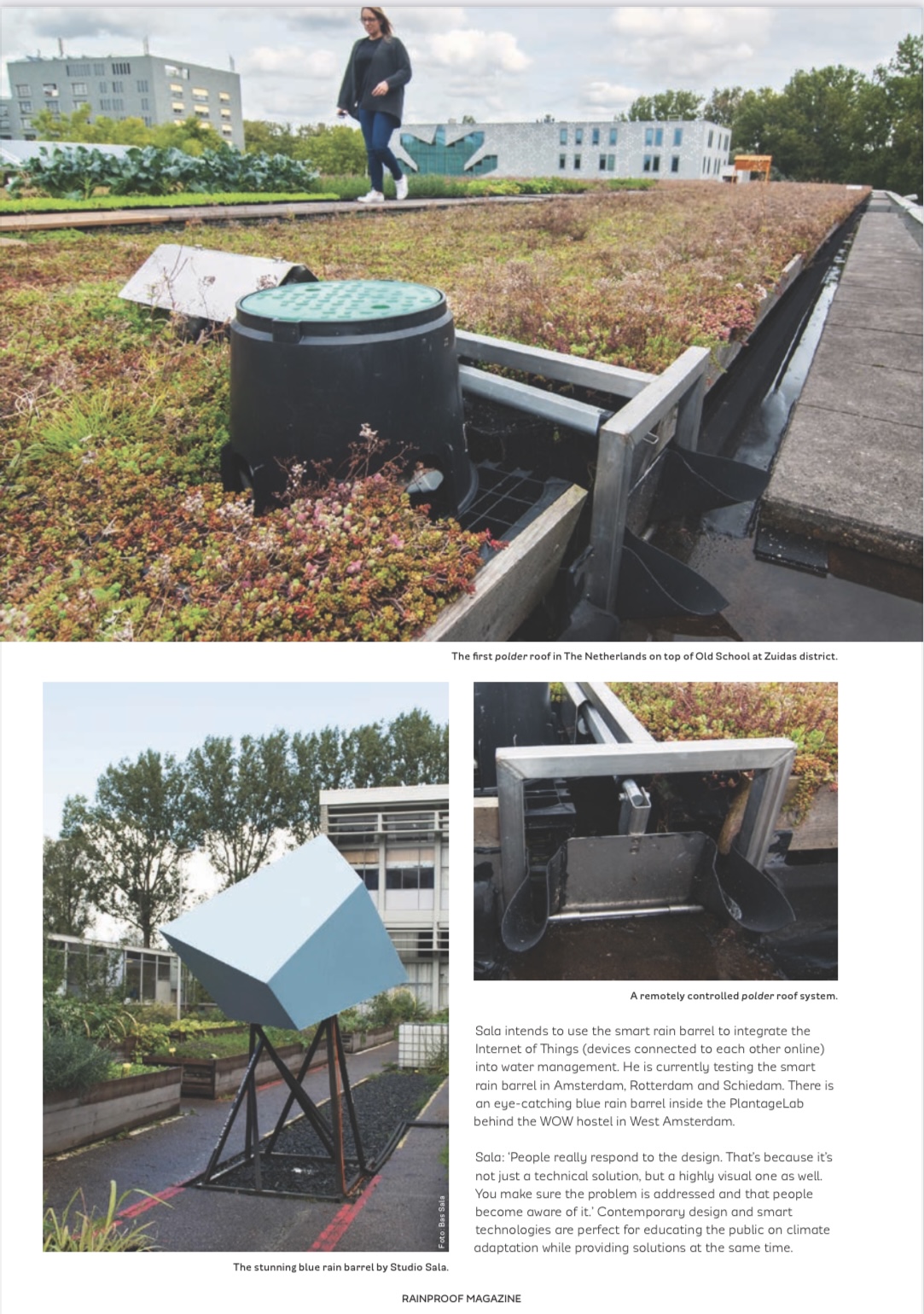
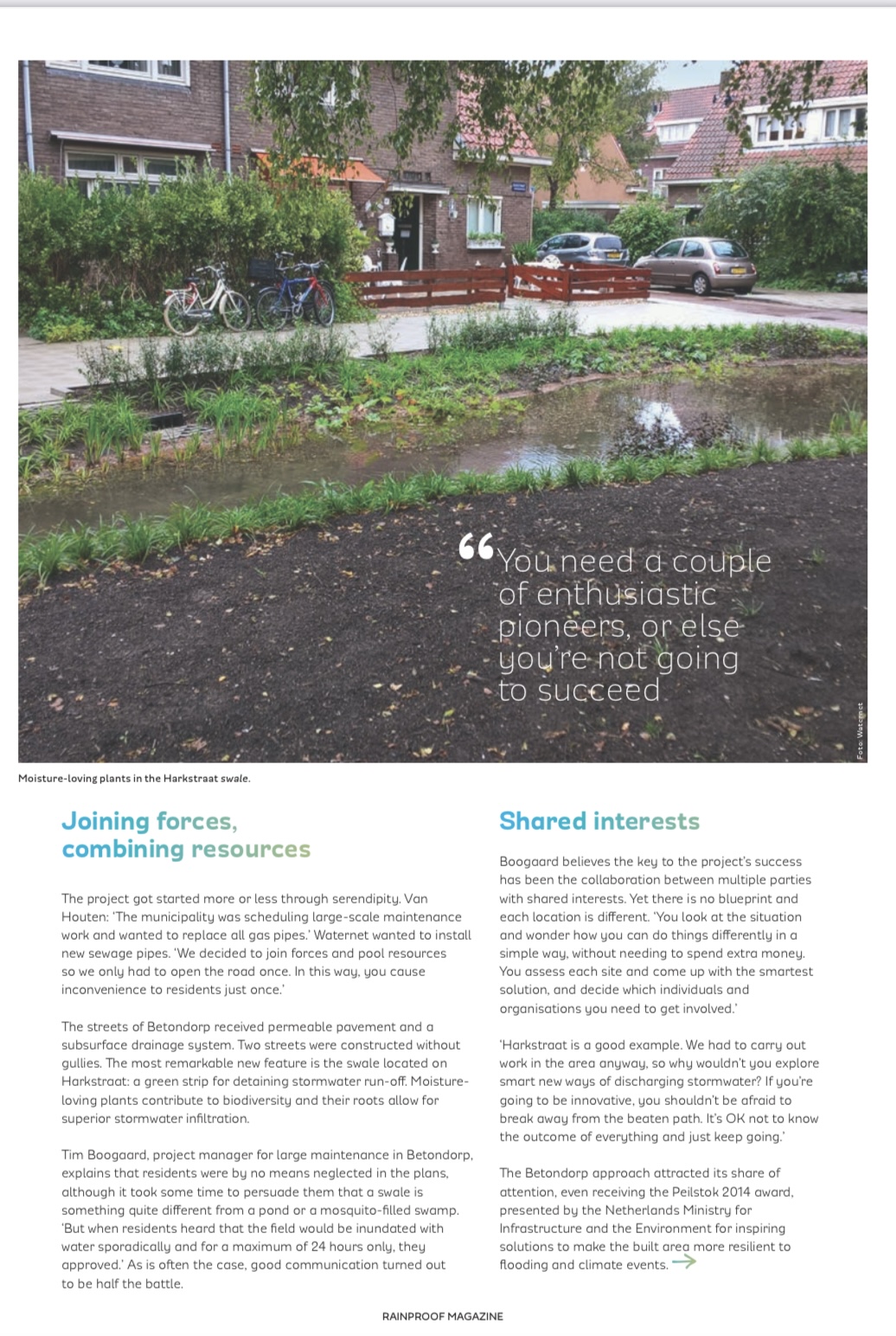
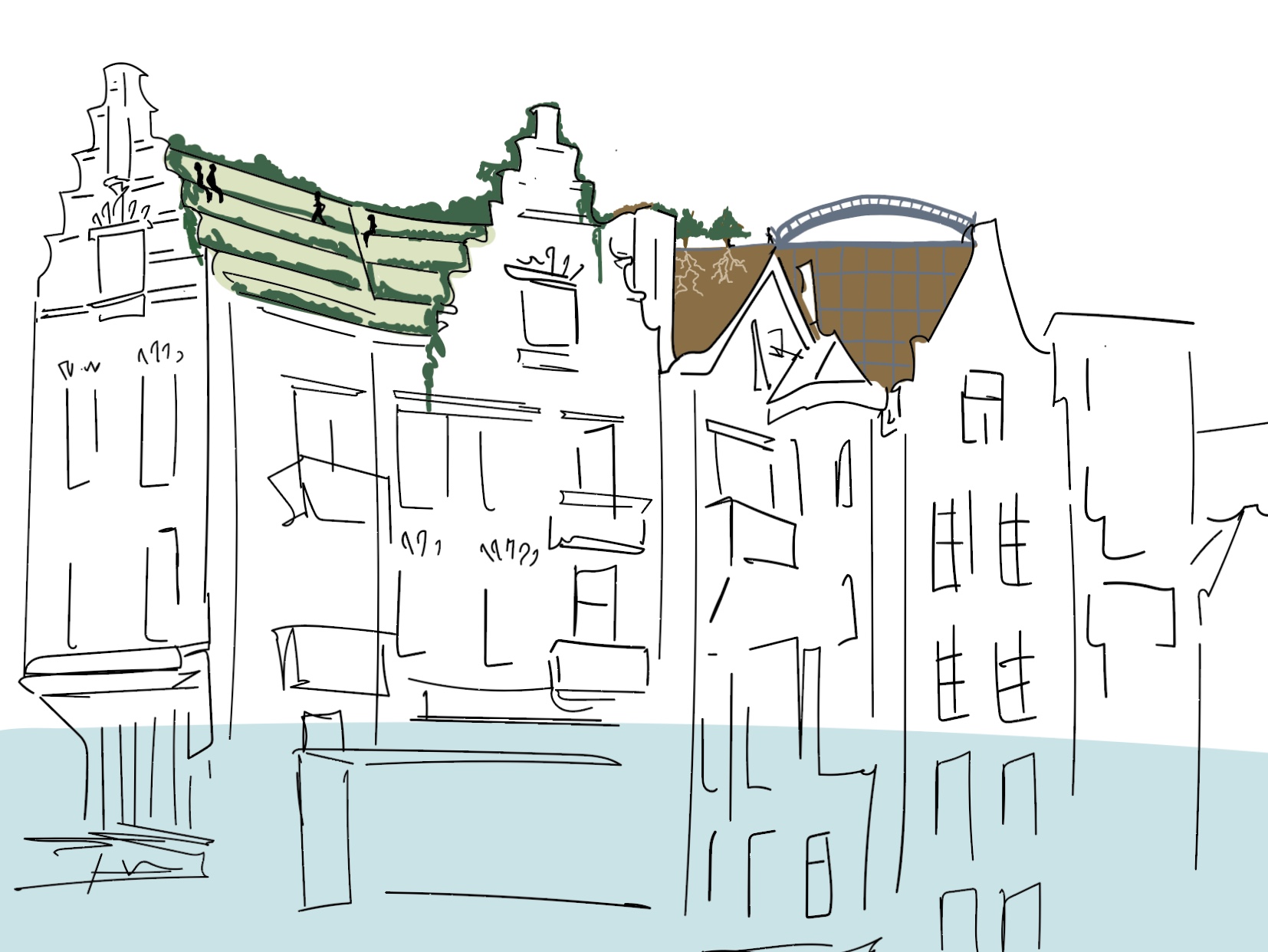
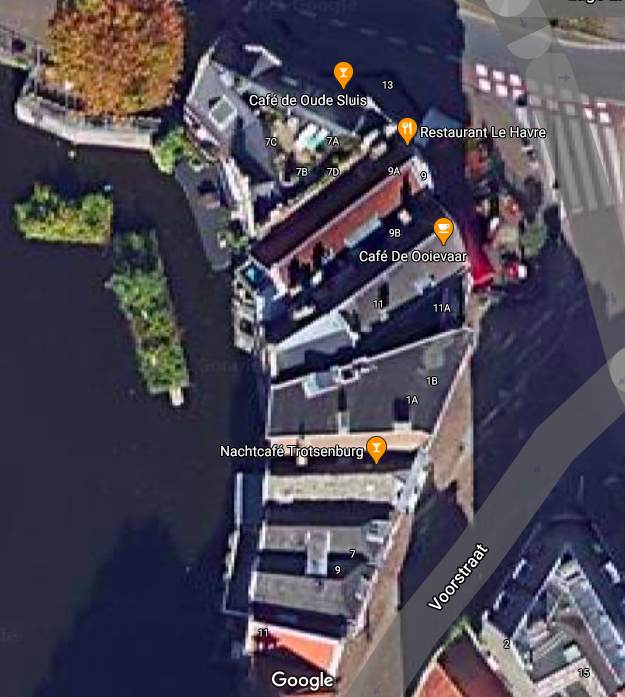
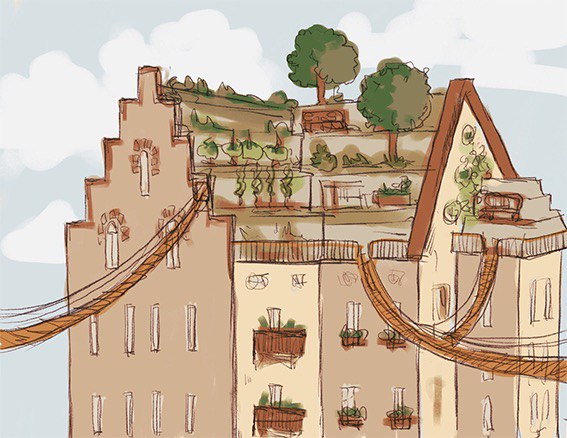
Scenario: Heavy Rainfall
Theme: Growth
Main Stakeholder: Residents of Delfshaven
Development of this project began in 2025 when a resident of Delfshaven, who works as a botanist, decided to start growing a small garden on his roof to soak up excess rainwater and prevent it from leaking through his roof. Being active in the community, he shared the benefits of this with his neighbours and encouraged them to do the same. By 2030, flash floods in the Delfshaven have become more common as a result of more extreme weather events. Some of the families in the neighbourhood are concerned about their children playing outside during these times but don’t want to keep them locked inside for days on end, so they decide to connect some of their roof gardens for their children to play on. This requires input from the municipality to set up the appropriate safety mechanisms. In the years that follow, more houses join the initiative to expand the roof gardens, making a small community park that increases interaction and communication between residents of the houses below. By 2050 there is an aim to connect houses not directly next to one another with bridges, and the municipality has started to put a bigger focus on not just collection but also redistribution of rainwater for use within the households themselves.
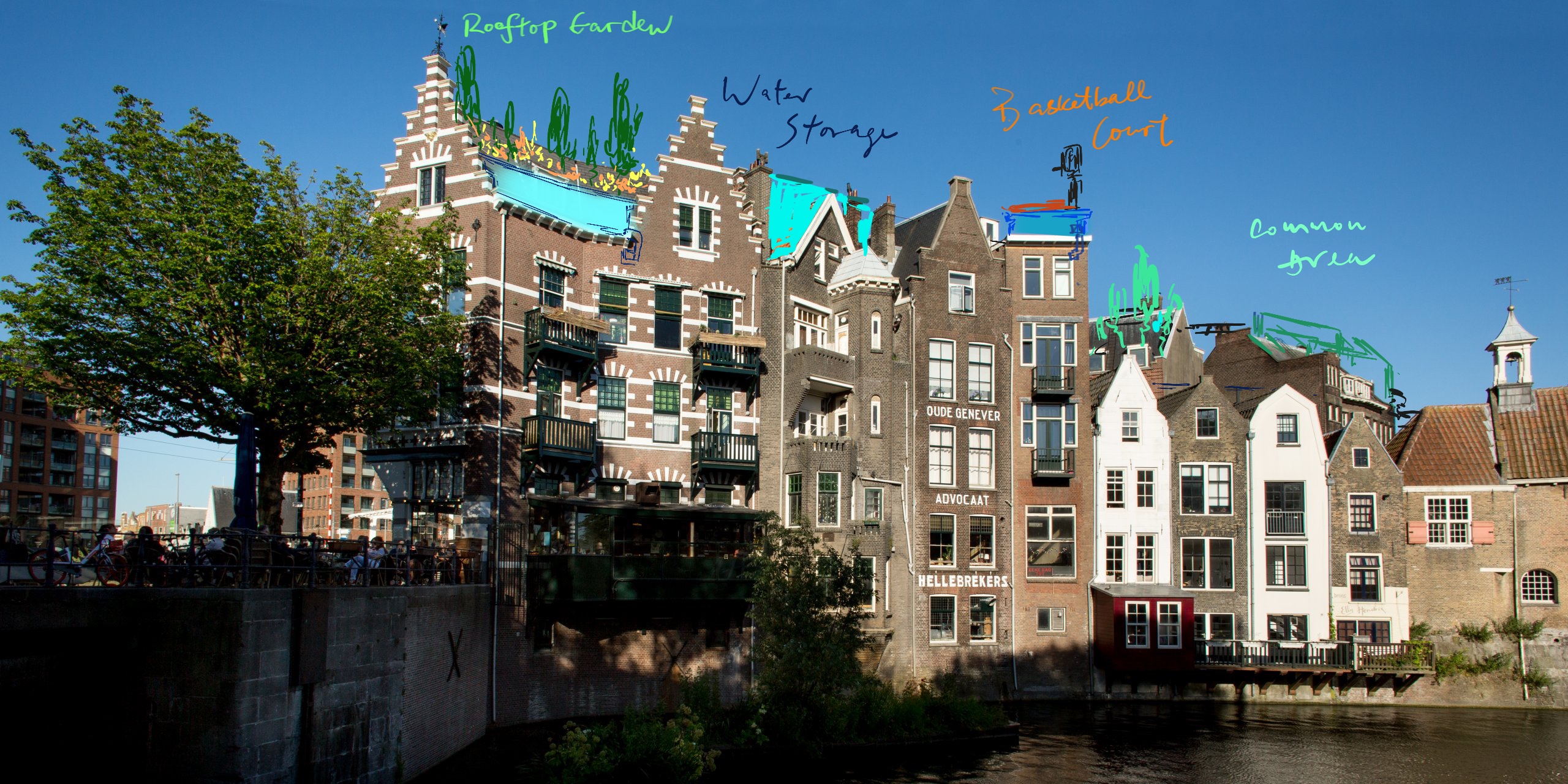
Benefits of the project:
- Increased protection from excess rainwater during extreme weather events
- Provides natural cooling mechanism in the summer months and prevents extreme dryness
- Increases the amount of public space available to the community
- Increases interaction and communication between members of the community
- Offers alternative mobility options when streets/roads are dealing with traffic or flooding
- Roof garden initiatives are currently subsidised by the municipality
- Could increase safety in the neighbourhood as residents are more encouraged to look after and care for their community
Waterschap
Woningbouwcorporaties
(social housing corporations)
Wijkmanagers
One of the things that stood out when conducting research into the topic was how important it is to get the community directly involved. Amsterdam based company 'Rainproof' has a magazine which explains their methods, ideas, problems, solutions etc. and puts a big emphasis on the fact that (in their own experience) the most successful projects are the one directly driven by the residents themselves.
Because of this we decided to make a poster/infographic
that might be used between now and 2030 to encourage residents of Delfshaven to start rainproofing their homes using roof gardens. By 2050 the plans would be much more extensive (i.e. with recreation opportunities and new space for mobility incase of flooding), but this is how we imagine that the project initially gets underway.
FINAL VISUALS
2021-2025
2050